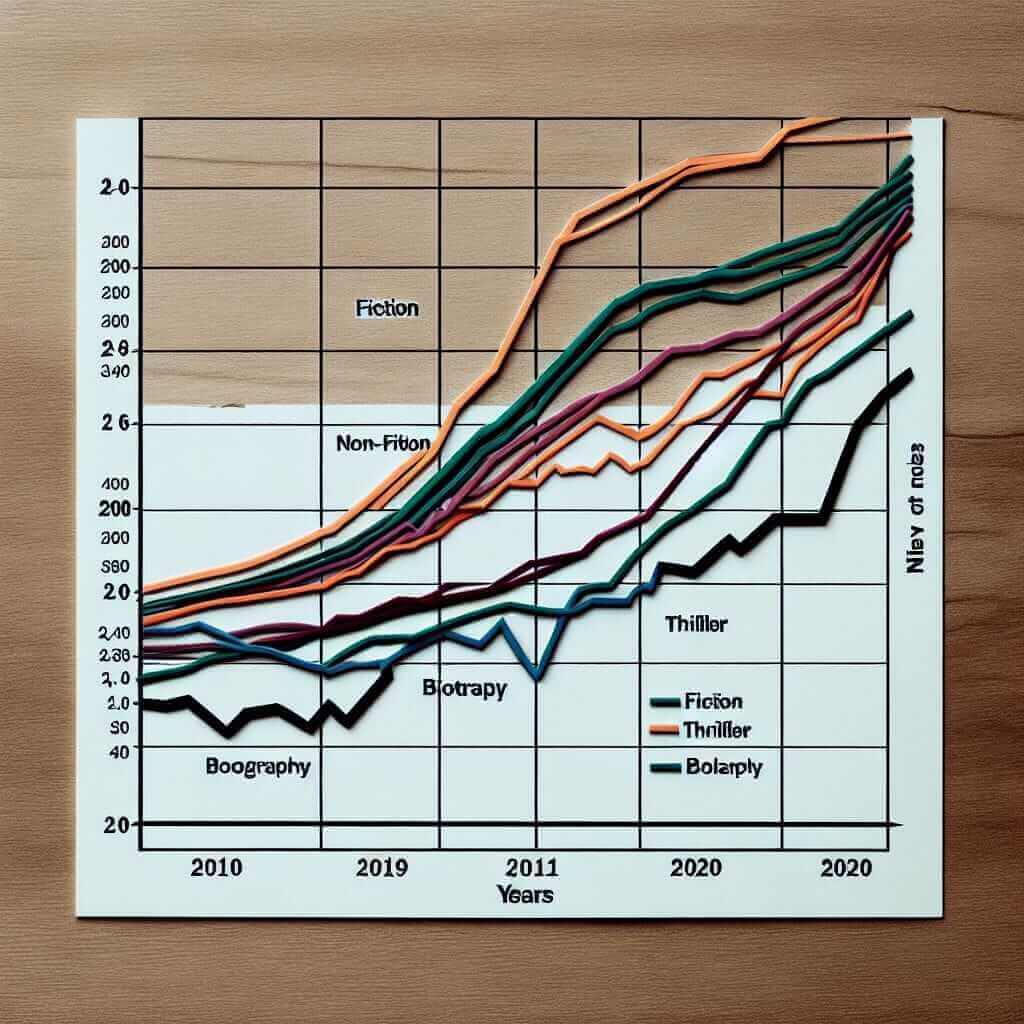As an IELTS instructor with over 20 years of experience, I’ve seen countless students grapple with the IELTS Writing test, particularly Task 1. This section requires a specific approach, and mastering it can significantly boost your overall score.
This comprehensive guide will delve into the intricacies of IELTS Writing Task 1, equipping you with the knowledge and strategies to craft impressive responses.
Understanding IELTS Writing Task 1
In Task 1 of the IELTS Academic Writing test, you’ll be presented with a visual representation of data, which could be a:
- Graph: Line graph, bar graph, pie chart
- Chart: Flowchart, process diagram
- Table: Presenting numerical data in rows and columns
- Map: Showing geographical changes over time
Your task is to analyze the presented information objectively and summarize it in a well-structured essay of at least 150 words. You’re allotted 20 minutes for this task.
Essential Steps to Write an Impressive IELTS Writing Task 1 Essay
1. Analyze the Visual Data Carefully
Before you begin writing, it’s crucial to thoroughly understand the information presented in the visual. Pay close attention to:
- The type of visual: Is it a graph, chart, table, or map?
- The main topic: What information is the visual conveying?
- Key features: Identify the most significant trends, patterns, or changes.
- Units of measurement: Note the units used for values, percentages, or timeframes.
2. Structure Your Essay Logically
A well-organized essay is key to a high score. Follow this structure:
Introduction (1-2 sentences):
- Paraphrase the question: Briefly state what the visual represents.
- Optional: Mention the timeframe or categories presented.
Overview (2-3 sentences):
- Highlight key trends: Summarize the most noticeable patterns or changes.
- Avoid specific details: Focus on general observations.
Body Paragraphs (2-3 paragraphs):
- Group data logically: Divide information into meaningful categories.
- Provide specific details: Use data from the visual to support your points.
- Compare and contrast: Highlight significant differences or similarities.
Conclusion (Optional – 1 sentence):
- Summarize the main findings: Briefly reiterate the key trends.
3. Use Accurate and Varied Language
Your choice of vocabulary and grammar significantly impacts your score.
- Formal language: Avoid informal expressions and contractions.
- Objective tone: Present information factually, without personal opinions.
- Varied vocabulary: Use synonyms to prevent repetition.
- Accurate grammar: Pay attention to verb tenses, subject-verb agreement, and articles.
- Data-specific language: Utilize words and phrases for describing trends, comparisons, and changes (e.g., increase, decrease, fluctuate, similar to, in contrast to).
4. Practice with Real IELTS Questions
The best way to prepare for Task 1 is to practice with authentic past papers. This will familiarize you with different question types and help you manage your time effectively.
Example: Analyzing a Line Graph
Let’s analyze a sample line graph and see how we can apply these steps.

Sample Answer:
The line graph illustrates the sales figures for four book genres – fiction, non-fiction, thriller, and biography – over a decade, from 2010 to 2020.
Overall, the sales of fiction books experienced the most significant growth, while biography remained relatively stagnant. Notably, thriller books saw a peak in popularity midway through the period.
In 2010, fiction began as the least popular genre with around 5,000 books sold, while non-fiction dominated the market with sales exceeding 20,000. However, fiction sales steadily climbed, surpassing non-fiction in 2016 and reaching a peak of 25,000 in 2020.
Thriller sales demonstrated a fluctuating trend. Starting at 10,000 books in 2010, sales peaked at 18,000 in 2015 before declining to 12,000 in 2020. Finally, biography books consistently remained the least favored genre, with sales hovering between 4,000 and 6,000 throughout the decade.
Tips for Success
- Allocate your time wisely: Spend a few minutes planning your response before you start writing.
- Focus on clarity: Use concise language and avoid unnecessary jargon.
- Proofread carefully: Check for any grammatical errors or typos before submitting.
- Practice, practice, practice! The more you write, the more confident you’ll become.
Conclusion
Mastering IELTS Writing Task 1 requires a combination of understanding the task requirements, effective data analysis, and strong writing skills. By following the steps outlined in this guide and practicing regularly, you’ll be well on your way to achieving a high score. Remember, confidence is key – approach the task strategically, and you’ll succeed!